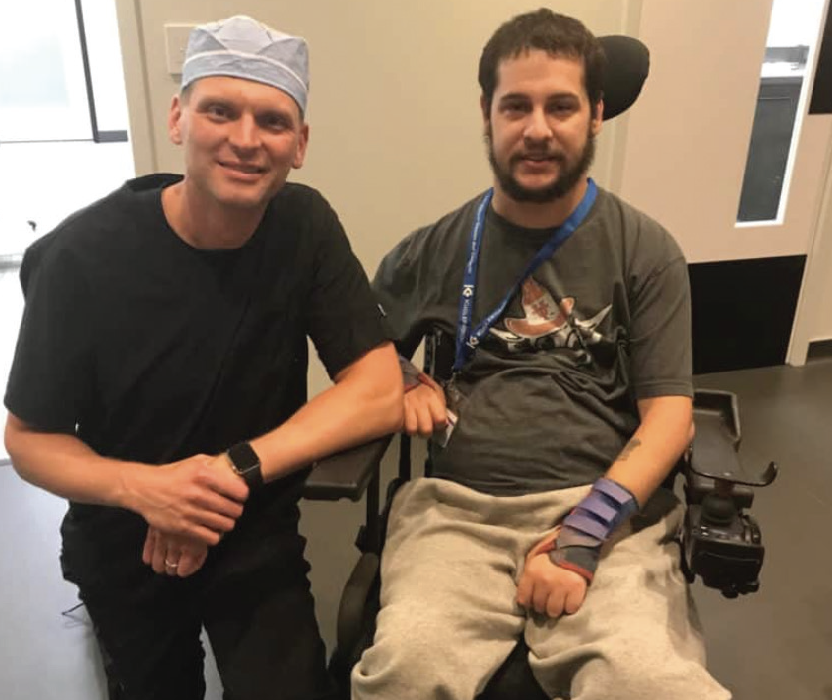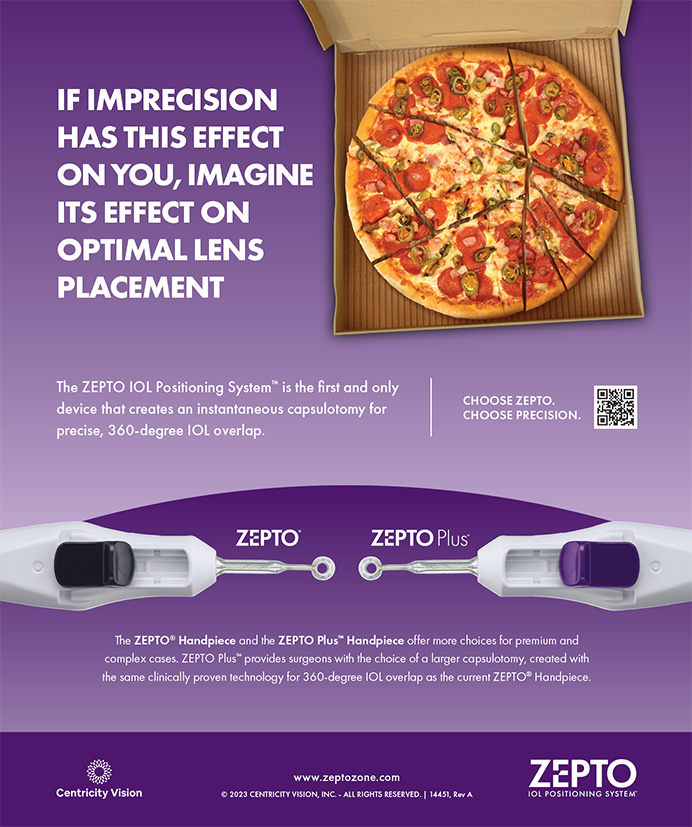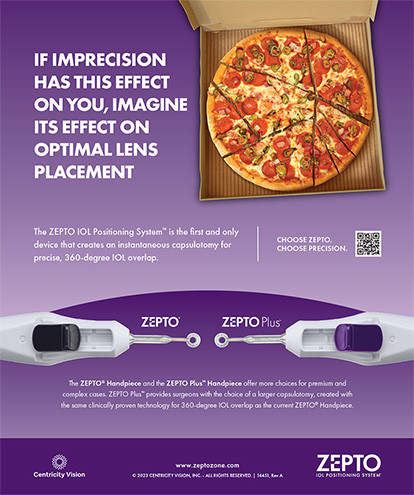
The general public views refractive surgery as an expensive luxury or cosmetic procedure. In other words, it is commonly believed that refractive surgery provides convenience and improves the patient’s physical appearance but is unnecessary. In contrast, refractive surgeons and patients who have undergone refractive surgery understand that the primary value of vision correction is the functional benefit it provides. Refractive surgery patients speak of improvements in their lifestyle and quality of life, and they rarely mention cosmesis.
The functional benefits of refractive surgery for certain groups of people, particularly those with physical disabilities, are obvious. People who struggle to put contact lenses on their eyes or to keep their glasses from sliding down their nose are well suited to benefit from refractive surgery. These advantages, however, are often not recognized by people with physical disabilities and the doctors serving their primary eye care needs. The Focus on Independence program was created to increase awareness in these individuals.
PROGRAM OVERVIEW
The Focus on Independence program was launched in 2003 by several US refractive surgeons to provide vision correction to individuals who are unable to use their arms or hands to handle eyeglasses or contact lenses. Initially, surgical intervention was limited to LASIK, but options have expanded to include SMILE, refractive lens exchange, and the implantation of phakic IOLs.
The program is informal and open to any refractive surgeon who wishes to participate. Volunteers provide surgery at no cost to the patient. There is no outside funding or donations; services are funded entirely by the individual practices. Without a central database or requirement for formal participation, it is difficult to know the program’s reach with certainty. It is estimated, however, that several dozen surgeons have participated at some level and more than 100 patients have benefitted from the Focus on Independence program since its inception (Figure).

Figure. Dr. Kugler with a patient who underwent refractive surgery through the Focus on Independence program.
THREE BENEFICIARIES
Here I share some context for three individuals who have benefitted from the Focus on Independence program.
No. 1: A 40-year-old man who became quadriplegic as a teenager after a traumatic accident. Incapable of speech and movement below the brainstem, the patient controls a text input and speech synthesizer by moving his eyes. He presented with -9.00 D of myopia. His thick glasses made it difficult for the speech synthesizer to track his eye movements reliably. Unable to wear contact lenses, the patient desired laser vision correction.
LASIK was uncomplicated. After surgery, the eye-tracking technology of his speech synthesizer worked without difficulty.
No. 2: A 55-year-old woman who became quadriplegic after a motor vehicle accident. Contact lens wear was not an option for the patient because she is unable to use her hands. Moreover, an inability to tilt her head to the necessary axis prevented bifocal spectacles from fully meeting her needs, and she was unable to reposition the glasses when they slid down her nose.
The patient underwent refractive lens exchange and received a multifocal IOL in each eye. After surgery, she was able to see well at distance and near without spectacles or contact lenses and without tilting her head.
No. 3: A woman who was born without arms. The patient was adept at using her feet to perform most activities of daily living, including the insertion and removal of contact lenses. After hearing the patient’s story on the TV news, a surgeon volunteering with the Focus on Independence program contacted her to suggest refractive surgery.
Twenty years after undergoing LASIK, the patient remains free of glasses and contact lenses, and she serves as an advocate for people with disabilities.
CONCLUSION
The World College of Refractive Surgery & Visual Sciences was founded in 2021. The organization brings together industry, academic institutions, professional societies, nongovernmental organizations, governments, research organizations, and other entities to tackle the leading cause of vision impairment in the world—refractive error. The Focus on Independence initiative is being incorporated into the organization as part of the effort to provide refractive surgery to the people around the world who need it most.




